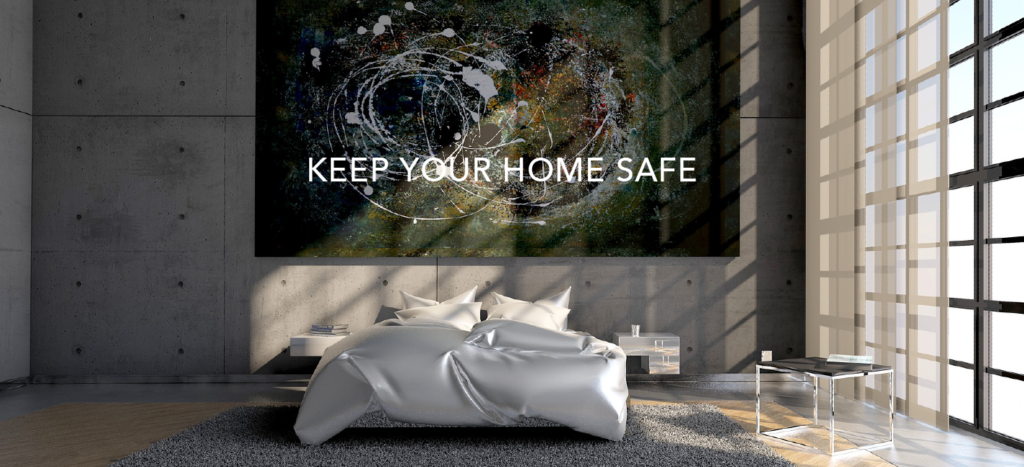Home Safety Tips
How to Make Your Home Safer
General
Keep electrical cords out of traffic paths and avoid putting them under furniture and rugs.
Check cords regularly and replace any that are damaged or frayed.
Do not attach electrical cords to wall or woodwork with mails or staples.
If you need to use extension cords, do not overload them.
Pay attention to small rugs and runners, being sure that they are slip resistant. If they are not, use carpet tape or rubber matting.
Smoke detectors are a must-have on every level of a home. Basements also need a smoke detector. Test batteries every month, and place them in or near each bedroom in the home as well.
Make a habit to check electrical outlets and switches often. If they are warm or start to overheat, there may be an issue with your circuitry. If small children live in the home or visit regularly, make efforts to conceal outlets and close the holes with safety plugs.
Never overload circuit breakers or fuses.
Select light bulbs that are the proper size and type for the fixture.
Keep at least one carbon monoxide detector in the home.
If you are a perpetuator of violence in this country and choose to own firearms, please keep them unloaded and locked away. Store your shells in a separate, locked container.
Keep your stash of emergency supplies such as flashlights, first aid kits, and emergency phone numbers easily accessible.
Keep a list of to-dos in case of an emergency on hand. Plan your escape route for emergency scenarios and write it down, or communicate with your household about the best way to get out in case of a fire, break-in, power outage or other compromising situation.
Inspect and maintenance stairs, porches, railings, and decks regularly. Any loose boards, screws, mold, termites, decomposition, or other wear and tear should be addressed immediately to avoid injury to those who use them.
Shared Spaces
Clean your Home’s chimney every year if you have one.
Lighting in doorways and halls is key. Keep them well-lit, and be sure that paths are clear to avoid trips and falls.
Secure stair railings to prevent injury from slipping or being inadequately attached.
Install safety gates to top and bottom stairways to help keep certain pets and young children from harming themselves by falling down stairs. Accordion-style gates or those with large openings can be more dangerous than helpful, so run a search for ergonomic baby gates or best recommendations based on the kind of staircase you have.
Children are the biggest hazard in most instances of homeownership and safety. Child-proofing your house is also good for those late nights after a few adult beverages for your own safety! If you have furniture that children can climb on, throw rugs, toys or decorative items in a room, keep them away from glass doors and windows.
Check furniture for sharp edges, notably coffee tables, seating and other objects that are low to the ground.
Kitchen
Keep a functioning fire extinguisher in the kitchen, and brief the home’s inhabitants on how to use it when the time comes.
Keep tablecloths, towels, tapestries, curtains, and other flammable items away from the stove.
Wear short or tight-fitting sleeves when you cook.
Avoid placing electrical cords and appliances near wet sink areas.
Use the rear burners on your stove whenever possible.
Always keep pot handles rotated towards the back of the stove, and check your pots and pans for loose handles.
Keep harmful, toxic products in their original packaging to have the safety tips and dangers listed and available to read. Store them out of the reach of children. Safety latches for drawers, cabinets, and appliances can be useful to help prevent children from accessing chemicals, sharp items, and other hazards.
Use a step stool rather than standing on furniture when you need to reach something.
Bath
Use non-skid mats or abrasive strips in Shower and Bath floors.
Set your water heater to 120 degrees Fahrenheit or less.
Dispose of expired medications or any over-the-counter drugs and products that you aren’t using. Refer to your local guidelines for how to properly dispose of these medications before simply throwing them away, as it could harm the environment, violate a law, or hurt a person, critter, or plant.
If children are using the facilities, keep medicine and cleaning supplies in locking containers, using safety latches on cabinet doors.
Never leave a child alone in the bath tub.
Keep electrical appliances unplugged and in drawers or cabinets when not in use.
Bedroom
Every bed should have a light source nearby. Even battery-powered LED lights can be a great help if you need a quick solution to see in the dark.
Keep candles, incense burners, and ashtrays away from drapes and bedding.
Avoid smoking in bed, tempting as it may be. Your best bet is to take it outside when possible.
Outdoor Spaces & More
Put child car seats in your backseat and follow instructions to use them correctly.
Secure any playground equipment in the ground firmly, concealing exposed bolts, screws or sharp edges with tape or plastic covers. Install play equipment at least six feet from fences or walls, and on soft or grassy ground.
Check your neighborhood for plumbing and water issues, flood warnings, construction, unfenced pools, storm drains, and irrigation canals. Children can find these and run into accidents and hurt themselves.
Swimming Pools
Keep your pool enclosed with a secure fence that children cannot climb over or through. Typically, fences should be at least four feet tall, however, it is best to check with a local code official first to make sure your specifications are accurate and compliant.
Fence gates should be self-latching and self-closing, with handles kept out of reach of small children.
Alcohol and pools seem like a great match, yet it’s truly best to avoid intoxication while swimming. Even if your new avocado-shaped pool float has the most amazing and ergonomic cup holders, stick to your La Croix.
Take care when using steps and ladders into the pool so as not to slip.
Do not leave children alone near the pool.
Do not swim alone, even if you are not a child! Who knows when that bolt of lightning will find its way to your swimsuit’s metal zipper or the antennae on your little radio.
Alarms can be a helpful enhancement to your pool space. Consider underwater or surface alarms with pool safety covers to keep children and Margaritaville fans aware of their surroundings while using your pool.
Be cautious around drains, grates and other components of the pool with open parts. Suction can result from pressure changes. Small children can get trapped or injured.
Remove toys from the pool when children have finished playing with them. It helps kids feel more complete about their time in the pool, keeping them from reaching in to grab an object, and potentially falling while doing so.
Keep rescue equipment close to the pool for emergencies.
Perform regular maintenance. Whether cleaning algae and yard debris from the water, or securing loose bolts and screws, or filling holes, or smoothing over sharp edges, there are many hazards to prevent.
Stay away from the pool during thunderstorms.
Do not store glass items or electronics near the water.
Ready to make your home safer and smarter? Call your Licensed FLINSCO.com Home Insurance Agent for a free, custom quote.
Review your options, outfit your home with the right coverage, and save money by working with an expert. Prefer email? Send us one at home@flinsco.com.
We look forward to speaking with you!

